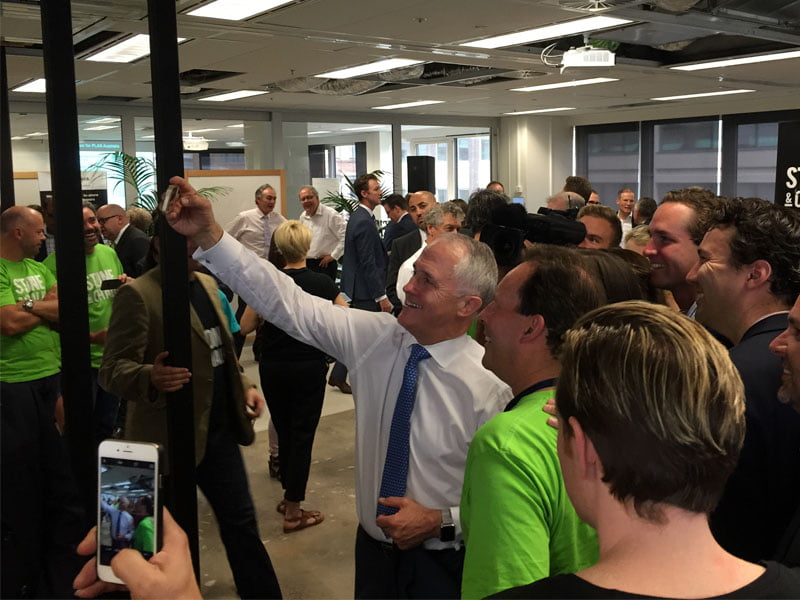It will be a slow, generational effort to boost the nation’s capability in science, technology, engineering and maths (STEM), but the work has started with funding announced for two schemes targeted pre-schoolers.
The Prime Minister this week announced funding of $4 million each for two programs over four years that aim to give 350,000 pre-schoolers a STEM boost.
Let’s Count is an initiative of The Smith Family that aims to improve engagement in numeracy by pre-schoolers, while Little Scientists is a program of the Germany-based Froebel Foundation and will use to funding to improve the science skills of pre-school teachers.

These are modest programs that take aim at a huge issue for Australia. It is not just about the production of young kids with an interest in STEM subjects to add to a pipeline of skills as they progress through schools – although this is obviously part of it.
There is a broader science and digital technology literacy issue here. And culture. This very early exposure sophisticated STEM teachings is also supposed to normalise the interest in these areas.
Mr Turnbull argues that 75 per cent of the fastest growing industries require STEM skills, and that there is a commitment to helping “Australia’s youngest minds” to develop an interest in these critical fields.
“Both programs provide young students with a new way of engaging with STEM subjects which will help to underpin Australia’s competitiveness in the future,” Mr Turnbull said.
The $8 million in funding will start to flow from the start of the new financial year. It is a part of the $112 million that was announced as a part of the National Innovation and Science Agenda to fund initiatives to grow Australia’s STEM capacity through programs from pre-school to university. It is likely that these programs will be expanded on.
The funding of the Froebel Foundation’s Little Scientists program is a little bit fascinating. We do seem to be looking to the Germans quite a bit more today than prior to last September. Froebel Foundation was set up in Germany ten years ago to improve STEM engagement – and the German government provided a grant to enable to foundation to establish itself in Australia.
There is absolutely nothing wrong with taking a lead from Germany. If you wanted to play follow-the-leader with any country in the world on STEM educations, following Germany would be a great place to start.
Malcolm Turnbull has drawn close to the Germans and has pressed hard from closer trade and innovation ties with Europe’s economic powerhouse. By happy coincidence, Lucy Turnbull is President of the Australian German Chamber of Commerce.
Australia’s growing interest in pursuing closer ties with Germany pre-dates Mr Turnbull taking over the Prime Ministership – but it does not pre-date Mrs Turnbull’s presidency of the chamber of commerce.
Following Chancellor Angela Merkel’s 2014 visit to Australia for the G20, Australia and Germany have pursued closer ties, with the formation of a bilateral process (spearheaded by Finance Minister Mathias Cormann) created when Tony Abbott was PM.
But Mr Turnbull is fully on board.
“Germany is a good example of a first world, highly developed nation of course, which has a very strong commitment to technology and science and innovation, and has really been able to remain at the frontier of innovation,” Mr Turnbull told a doorstop press conference in Canberra this week. “And part of that is this culture of commitment to science.”
All of this is a long-winded prelude to a highly speculative prelude: Lots of people are wondering about where the fabled ‘Landing Pads’ will be set up around the world.
We know that there will be five Landing Pads. San Francisco and Tel Aviv have already been named. We have been told there will be two in Asia.
There is a good chance that one of these Landing Pads will be in Germany – either Berlin or Munich – despite what it says on the top left-hand corner of the Australian flag.
Do you know more? Contact James Riley via Email.

